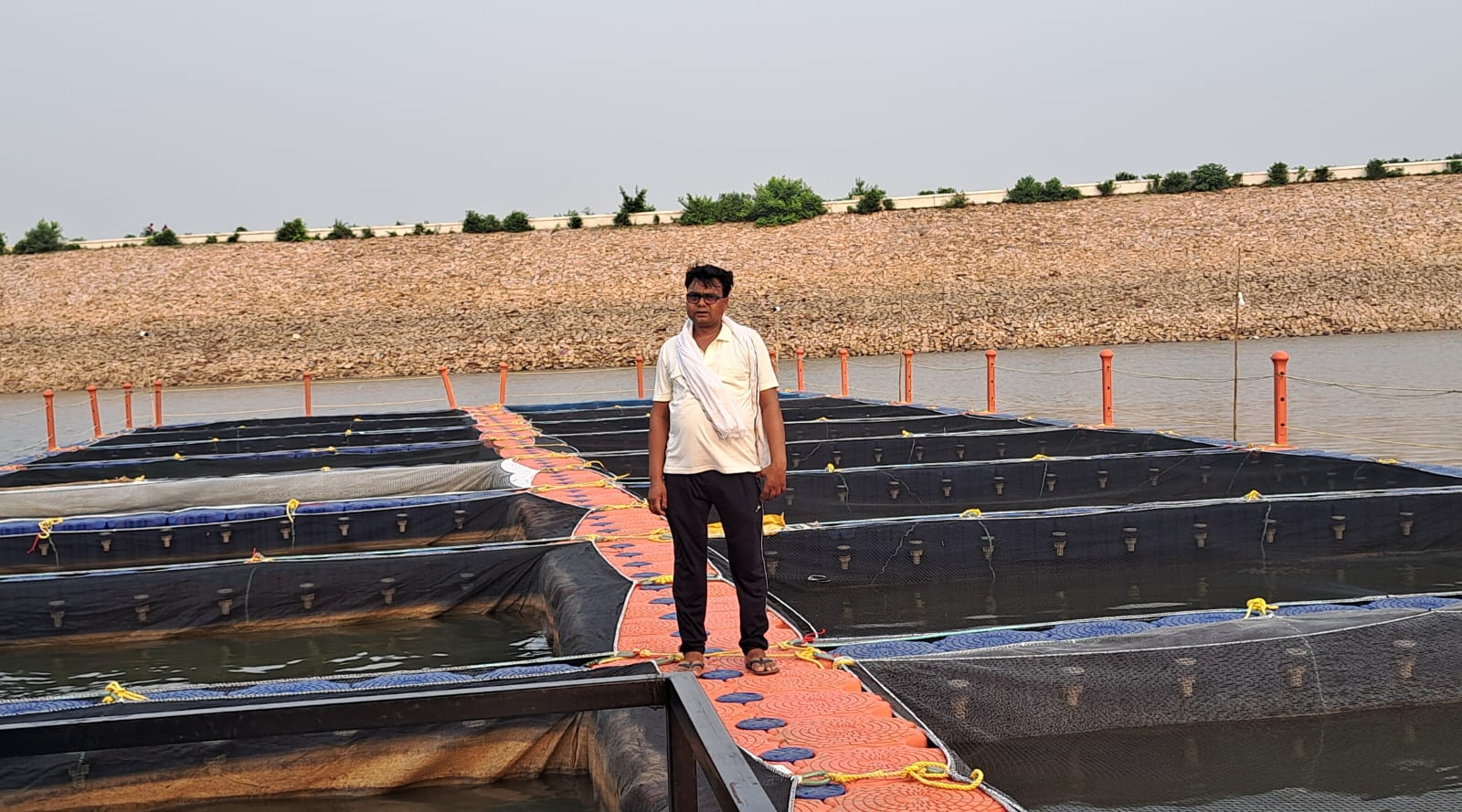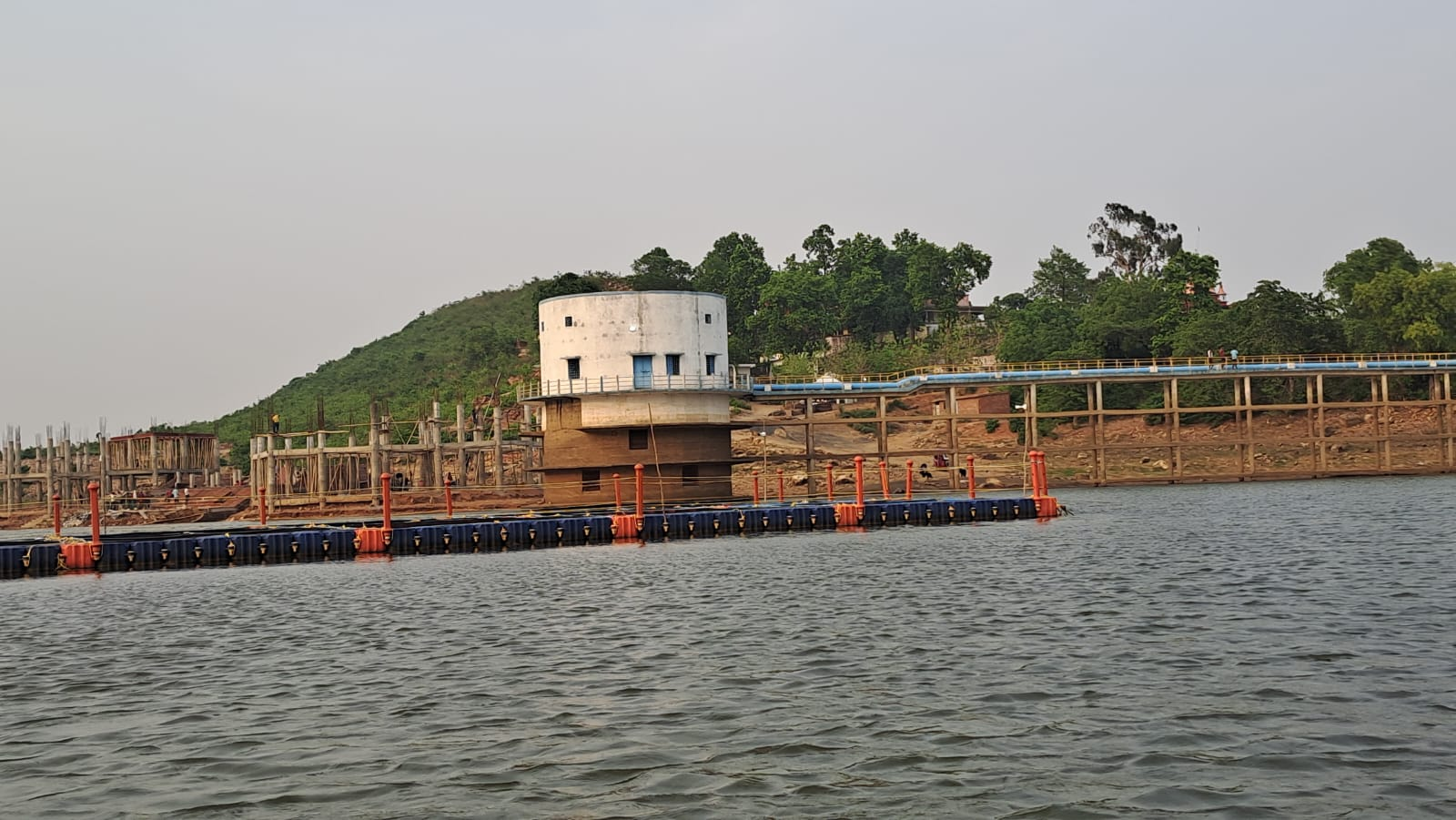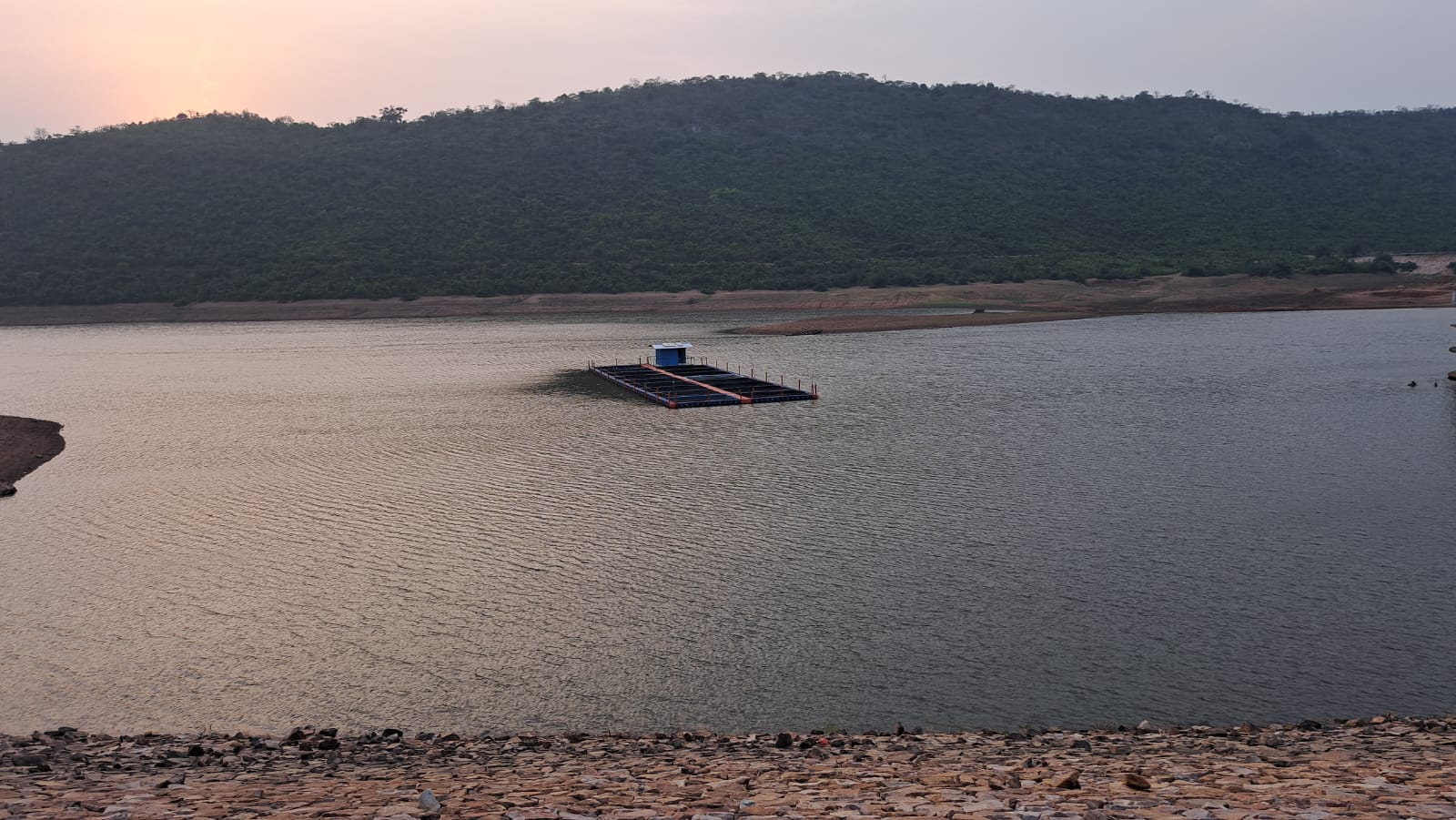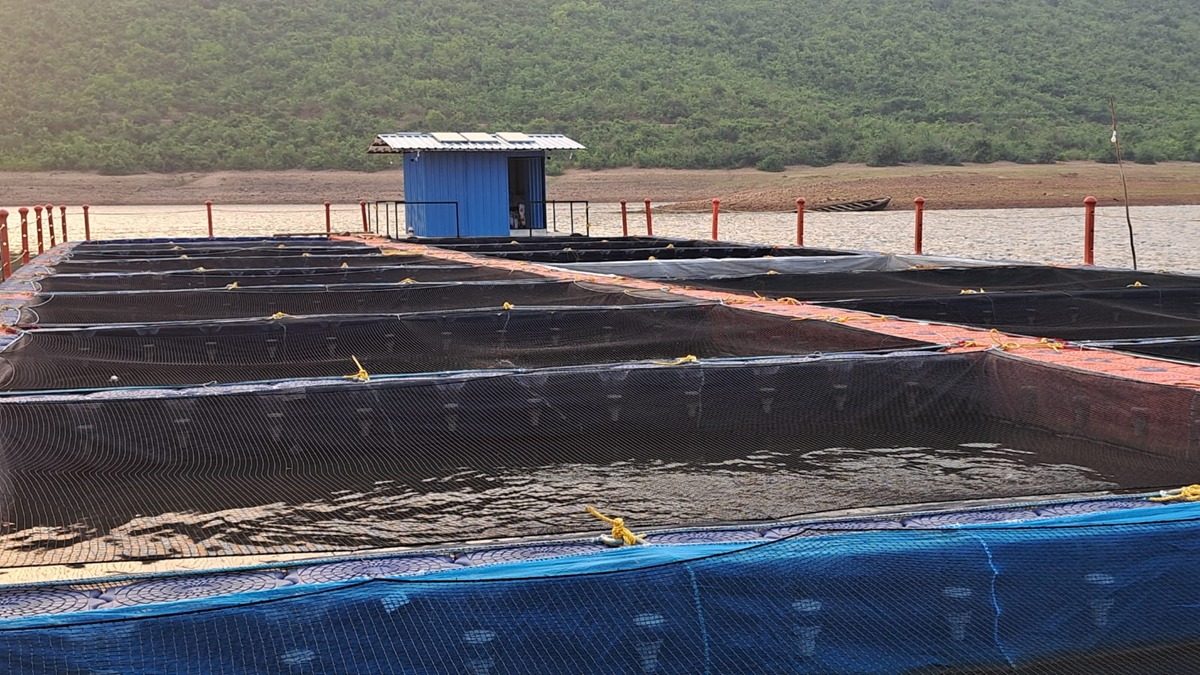To boost fish farming, the Munger district in Bihar has pioneered the use of cage culture technology. Known as net pen culture, this innovation has involved the deployment of 17 floating cage units upon Khargpur Lake, setting the stage for advanced aquaculture practices.
What is Cage Culture Technique?
It's a method where designated areas in a waterbody are outfitted with floating cages. Connected units make a farm, each with quadruple nets surrounding a sturdy plastic frame, impervious to turtles and aquatic life. Within these enclosures, fishes are cultivated, starting from fingerling size. Daily feeding ensures speedy growth, resulting in substantial size within half a year. This method is part of a reservoir fishery enhancement scheme, aimed at increasing fish productivity without compromising the reservoir's primary purpose.

Source: aajtak
Benefits of Cage Farming
Compared to ponds or lakes, cage farming fosters quicker fish growth with healthier, disease-free stocks due to isolation from external fish threats. Fish farmers can harvest based on demand, allowing unneeded fish to grow further within the cages. It's a cost-effective solution, guaranteeing higher returns in a shorter timeframe and propelling Munger toward a self-sustaining model of fish production. The extensive setup of 17 cage units can nurture over 102,000 fishes, projecting significant productivity gains per cage.

Source: aajtak
Insights from the District Fisheries Officer
Manish Rastogi, the District Fisheries Officer, shares insights on the implementation of cage culture technology within the district. It's a time and cost-efficient move, benefiting the fishermen immensely. To foster independence among them, the state government has launched the reservoir fishery development scheme, under which Chandan Kumar's unit was established with an expense of 51 lakhs INR, aided by a 70% government subsidy.

Source: aajtak




